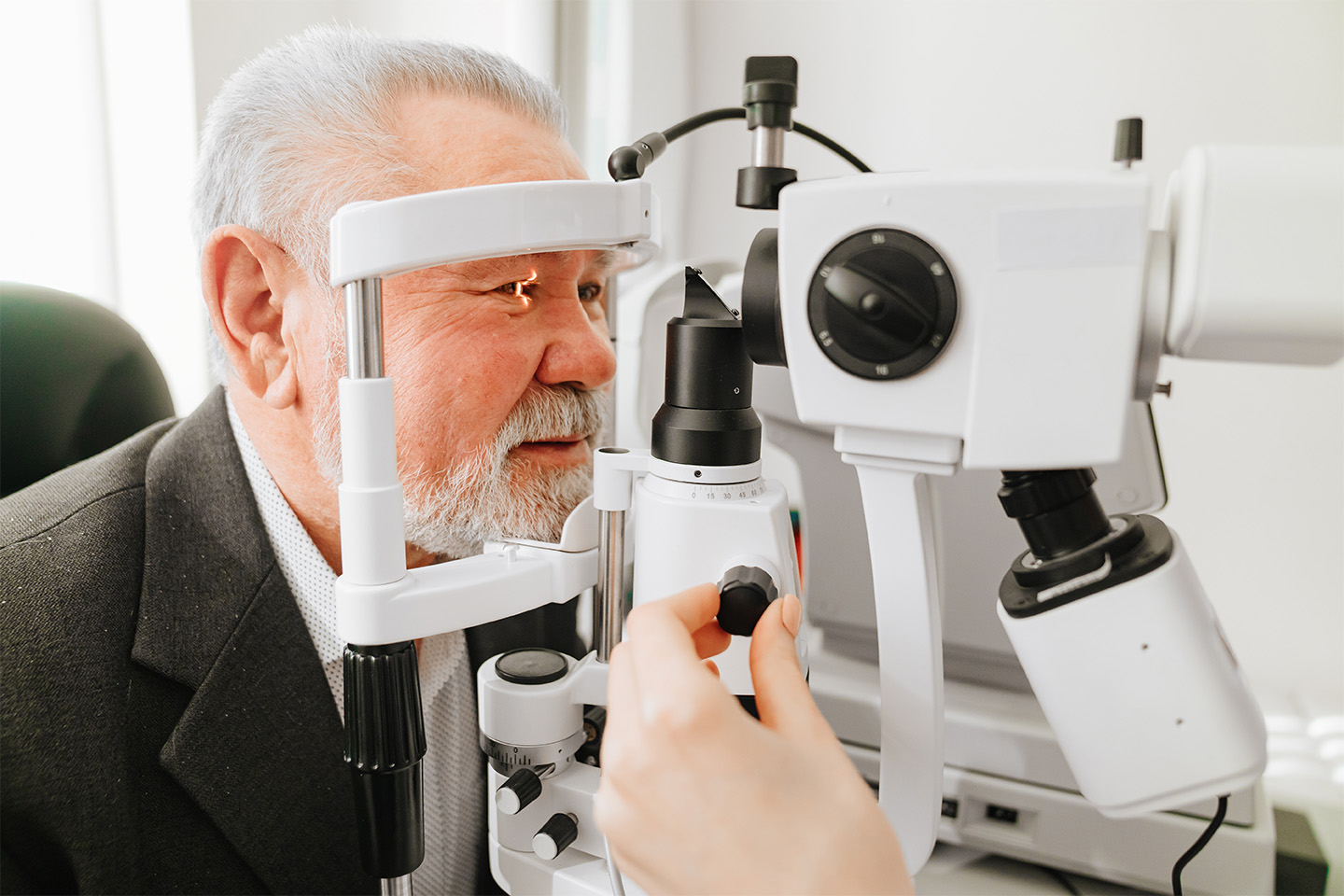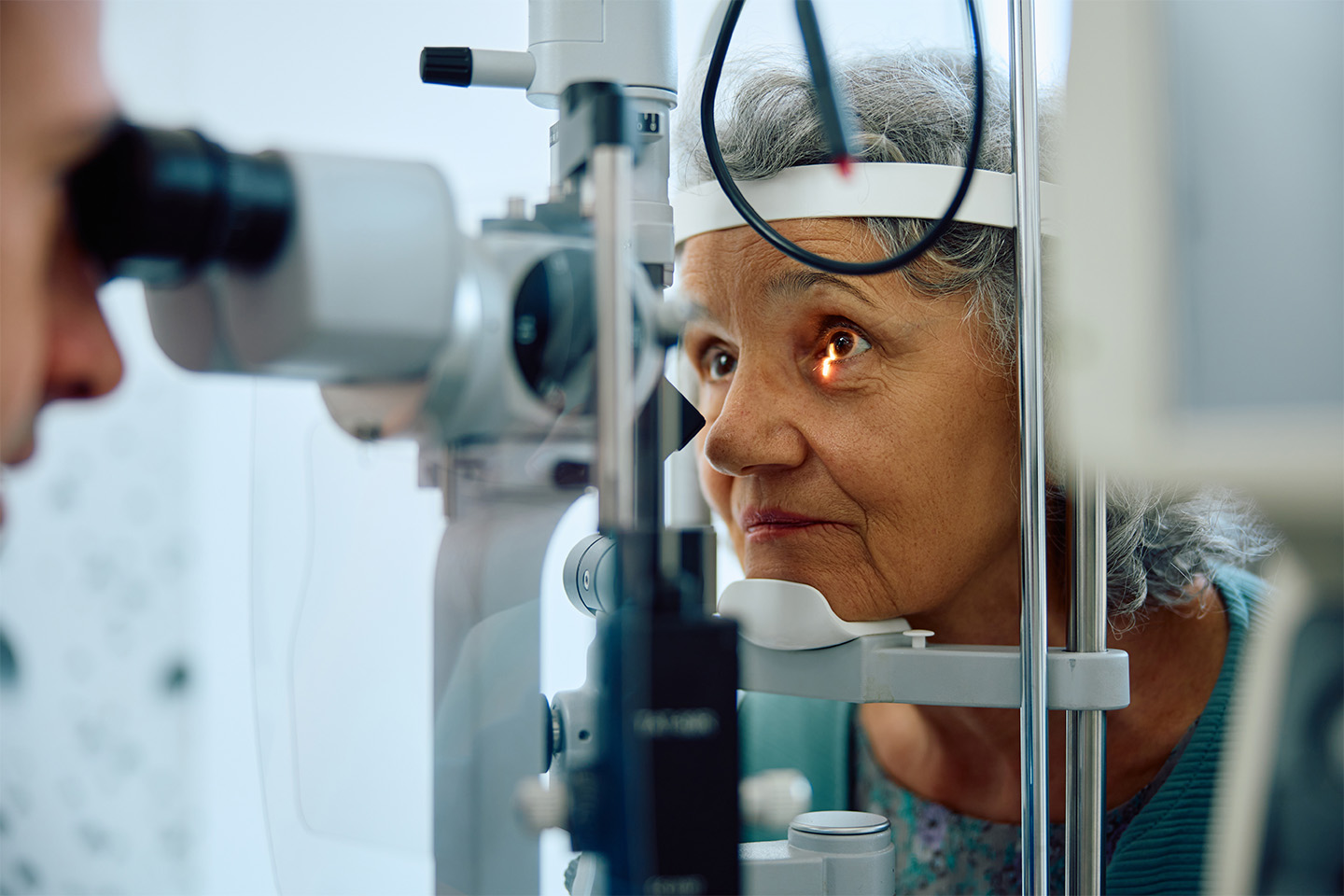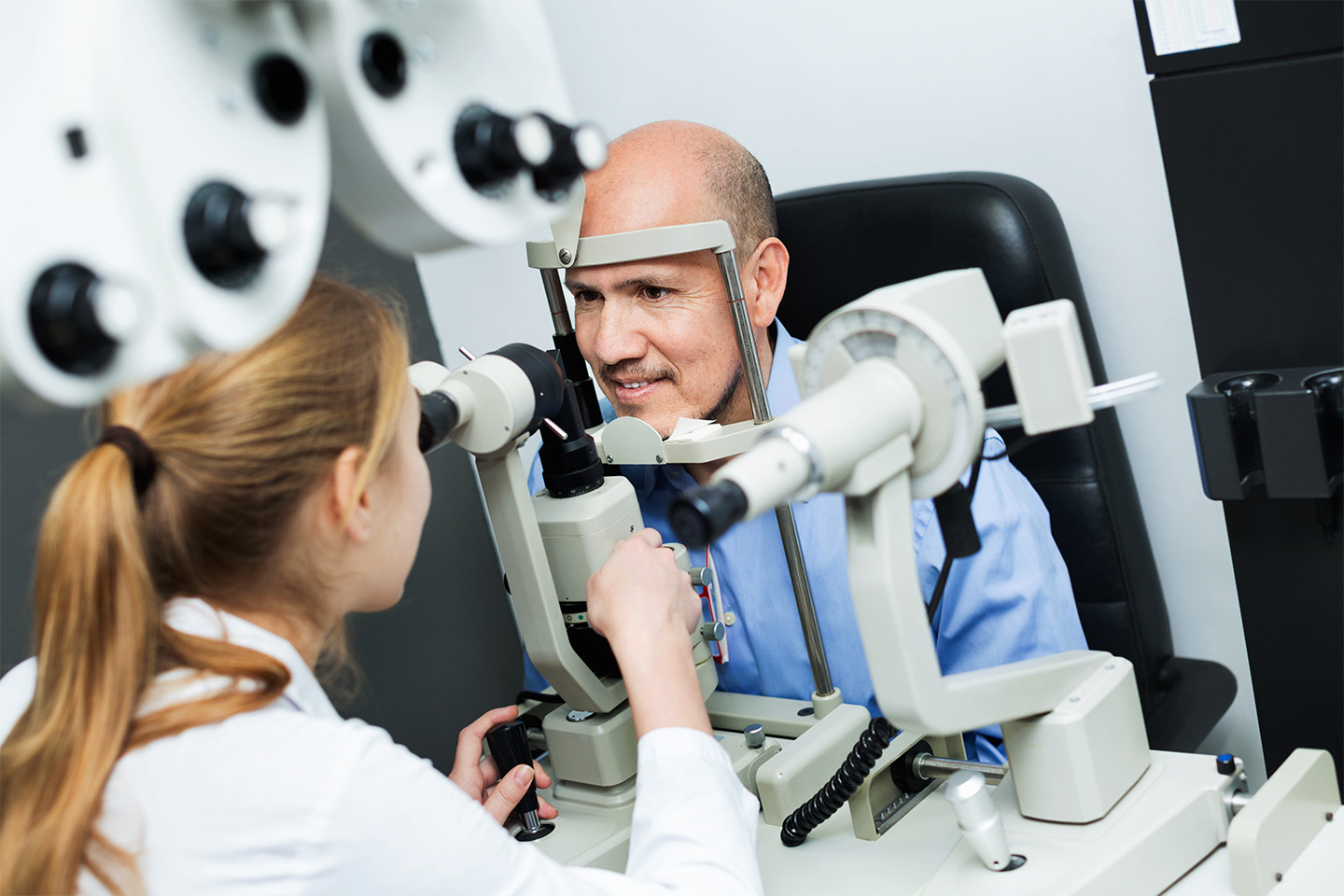What Do Cataracts Feel Like?

You may not realize you have cataracts until the condition progresses to the point where your vision is compromised. Here’s what to look for to catch cataracts as early as possible.
Cataracts is a progressive disorder that clouds vision. Cataracts develop so slowly that most people don’t recognize the signs until the condition has reached its latter stage – so it’s important to learn about cataract causes and symptoms before any serious development occurs.
In fact, cataracts may begin to form when a person is in their 40s or 50s, but not severely compromise eyesight until age 80 or older. Although considered an age-related condition, cataracts can be present at birth or arise due to a chronic disease like diabetes. For the vast majority of cases, however, cataracts take hold as the lens of the eye becomes less supple and transparent as we get older.
Located behind the iris, the lens of the eye filters light and images to the retina. Over time, proteins in the lens cluster together. These clumps blur our vision, leading to many of the common symptoms of cataracts. Cataracts usually grow in both eyes, but may be more severe in one eye than the other.
![]()
Cataracts can develop in different parts of the lens. If they form in the center of the eye, they may temporarily produce better reading vision before ultimately diminishing one’s eyesight. Cataracts lining the sides of the lens give rise to white-colored streaks along the edge of the eye. These streaks eventually extend to the middle of the lens. Finally, when located at the back of the lens, cataracts make it difficult to read or distinguish lights at night. These cataracts are the most rapidly developing form of the disorder.
Wherever cataracts arise, they have a number of common symptoms. If you notice any of these signs, consult your eyecare specialist for diagnosis and treatment.
How Do I Know If I Have Cataracts?
Cataracts produce several tell-tale signs. Here’s what cataracts look and feel like as they develop.
- Cloudy Vision. As cataracts progress, it will seem like you’re seeing the world through a cloudy lens. You may notice an opaque film covering the iris, and it will become harder to distinguish distinct colors, with most hues taking on a yellowish tint.
- Decrease in Night Vision. The hazy vision caused by cataracts significantly impairs how well you see at night. Specifically, cataracts result in the appearance of “halos” around bright lights, especially when you drive at night.
- Frequent Changes in Prescriptions. The need to frequently scale up your eyeglass or contact lens prescription to see clearly could be a signal cataracts have begun to affect your vision. If you end up changing your prescriptions multiple times within a short interval, it may be time to get checked for cataracts.
- Double Vision. Cataracts sometimes produce double vision, wherein a single object appears as two objects. However, double vision may be caused by other conditions, such as corneal swelling. A thorough eye exam will enable an eyecare specialist to determine whether cataracts are the root cause of your double vision.
- Sensitivity to Light. Looking into bright lights may be painful if you have cataracts. This is particularly true of cataracts positioned at the back of the lens.
Treatment Options for Cataracts
The development trajectory of cataracts underscores the importance of getting regular eye exams. At their earliest stages, cataracts may not require surgical intervention; nevertheless, they must be monitored for any changes that impact your quality of life and ability to carry out your daily routine.
If your eyecare specialists does recommend an operation, rest assured that cataract surgery has been proven safe and effective. Cataract surgery is an outpatient procedure that removes the clouded lens and replaces it with an artificial intraocular lens.
If you’d like to know more about cataracts, consider consulting one of the vision specialists at ICON Eyecare. Our team has extensive experience diagnosing and treating many eye disorders, including cataracts. Schedule your VIP consultation today.









